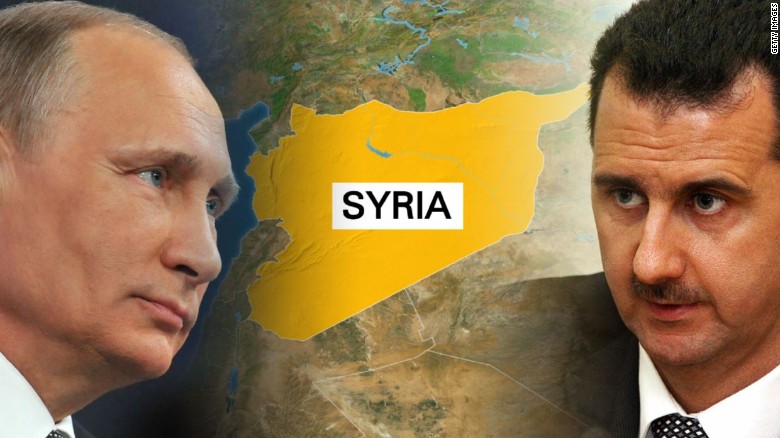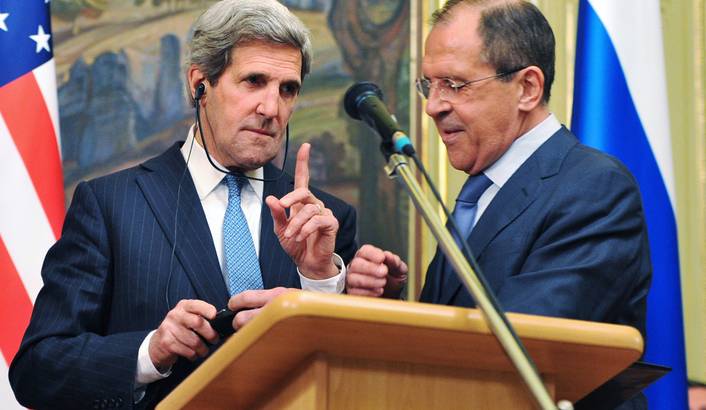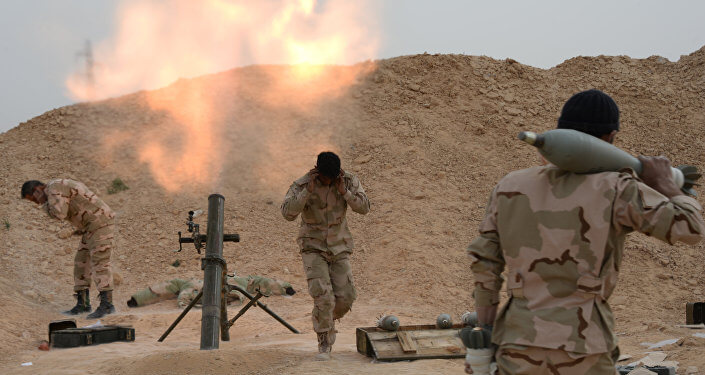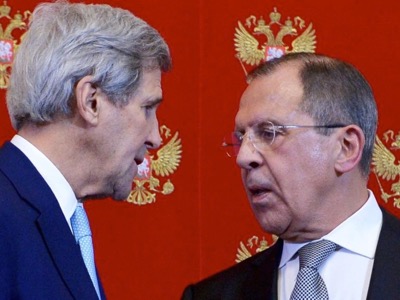Russia proposed more than three years ago that Syria’s president, Bashar al-Assad, could step down as part of a peace deal, according to a senior negotiator involved in back-channel discussions at the time.
Former Finnish president and Nobel peace prize laureate Martti Ahtisaari said western powers failed to seize on the proposal. Since it was made, in 2012, tens of thousands of people have been killed and millions uprooted, causing the world’s gravest refugee crisis since the second world war.
Ahtisaari held talks with envoys from the five permanent members of the UN security council in February 2012. He said that during those discussions, the Russian ambassador, Vitaly Churkin, laid out a three-point plan, which included a proposal for Assad to cede power at some point after peace talks had started between the regime and the opposition.
But he said that the US, Britain and France were so convinced that the Syrian dictator was about to fall, they ignored the proposal.
Officially, Russia has staunchly backed Assad through the four-and-half-year Syrian war, insisting that his removal cannot be part of any peace settlement. Assad has said that Russia will never abandon him. Moscow has recently begun sending troops, tanks and aircraft in an effort to stabilise the Assad regime and fight Islamic State extremists.
Ahtisaari won the Nobel prize in 2008 “for his efforts on several continents and over more than three decades, to resolve international conflicts”, including in Namibia, Aceh in Indonesia, Kosovo and Iraq.
On 22 February 2012 he was sent to meet the missions of the permanent five nations (the US, Russia, UK, France and China) at UN headquarters in New York by The Elders, a group of former world leaders advocating peace and human rights that has included Nelson Mandela, Jimmy Carter, and former UN secretary general Kofi Annan.
“The most intriguing was the meeting I had with Vitaly Churkin because I know this guy,” Ahtisaari recalled. “We don’t necessarily agree on many issues but we can talk candidly. I explained what I was doing there and he said: ‘Martti, sit down and I’ll tell you what we should do.’
“He said three things: One – we should not give arms to the opposition. Two – we should get a dialogue going between the opposition and Assad straight away. Three – we should find an elegant way for Assad to step aside.”
Churkin declined to comment on what he said had been a “private conversation” with Ahtisaari. The Finnish former president, however, was adamant about the nature of the discussion.
“There was no question because I went back and asked him a second time,” he said, noting that Churkin had just returned from a trip to Moscow and there seemed little doubt he was raising the proposal on behalf of the Kremlin.
Ahtisaari said he passed on the message to the American, British and French missions at the UN, but he said: “Nothing happened because I think all these, and many others, were convinced that Assad would be thrown out of office in a few weeks so there was no need to do anything.”
While Ahtisaari was still in New York, Kofi Annan was made joint special envoy on Syria for the UN and the Arab League. Ahtisaari said: “Kofi was forced to take up the assignment as special representative. I say forced because I don’t think he was terribly keen. He saw very quickly that no one was supporting anything.”
In June 2012, Annan chaired international talks in Geneva, which agreed a peace plan by which a transitional government would be formed by “mutual consent” of the regime and opposition. However, it soon fell apart over differences on whether Assad should step down. Annan resigned as envoy a little more than a month later, and Assad’s personal fate has been the principal stumbling block to all peace initiatives since then.
Last week, Britain’s foreign secretary, Philip Hammond, suggested that as part of a peace deal, Assad could remain in office during a six-month “transitional period” but the suggestion was quickly rejected by Damascus.
Western diplomats at the UN refused to speak on the record about Ahtisaari’s claim, but pointed out that after a year of the Syrian conflict, Assad’s forces had already carried out multiple massacres, and the main opposition groups refused to accept any proposal that left him in power. A few days after Ahtisaari’s visit to New York, Hillary Clinton, then US secretary of state, branded the Syrian leader a war criminal.
Sir John Jenkins – a former director of the Middle East department of the UK’s Foreign Office who was preparing to take up the post of ambassador to Saudi Arabia in the first half of 2012 – said that in his experience, Russia resisted any attempt to put Assad’s fate on the negotiating table “and I never saw a reference to any possible flexing of this position”.
Jenkins, now executive director of the Middle East branch of the International Institute for Strategic Studies, said in an email: “I think it is true that the general feeling was Assad wouldn’t be able to hold out. But I don’t see why that should have led to a decision to ignore an offer by the Russians to get him to go quickly, as long as that was a genuine offer.
“The weakest point is Ahtisaari’s claim that Churkin was speaking with Moscow’s authority. I think if he had told me what Churkin had said, I would have replied I wanted to hear it from [President Vladimir] Putin too before I could take it seriously. And even then I’d have wanted to be sure it wasn’t a Putin trick to draw us in to a process that ultimately preserved Assad’s state under a different leader but with the same outcome.”
A European diplomat based in the region in 2012 recalled: “At the time, the west was fixated on Assad leaving. As if that was the beginning and the end of the strategy and then all else would fall into place … Russia continuously maintained it wasn’t about Assad. But if our heart hung on it, they were willing to talk about Assad; mind: usually as part of an overall plan, process, at some point etc. Not here and now.”
However, the diplomat added: “I very much doubt the P3 [the US, UK and France] refused or dismissed any such strategy offer at the time. The questions were more to do with sequencing – the beginning or end of process – and with Russia’s ability to deliver – to get Assad to step down.”
At the time of Ahtisaari’s visit to New York, the death toll from the Syrian conflict was estimated to be about 7,500. The UN believes that toll passed 220,000 at the beginning of this year, and continues to climb. The chaos has led to the rise of Islamic State. Over 11 million Syrians have been forced out of their homes.
“We should have prevented this from happening because this is a self-made disaster, this flow of refugees to our countries in Europe,” Ahtisaari said. “I don’t see any other option but to take good care of these poor people … We are paying the bills we have caused ourselves.”











